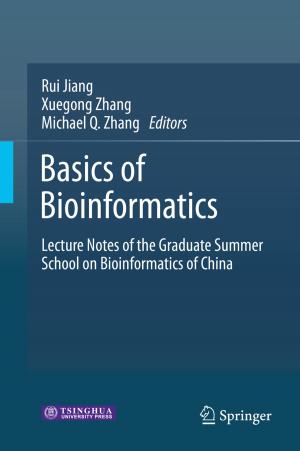China: Innovative Green Development
Nonfiction, Science & Nature, Science, Biological Sciences, Environmental Science, Business & Finance, Economics| Author: | Angang Hu | ISBN: | 9783642549625 |
| Publisher: | Springer Berlin Heidelberg | Publication: | May 19, 2014 |
| Imprint: | Springer | Language: | English |
| Author: | Angang Hu |
| ISBN: | 9783642549625 |
| Publisher: | Springer Berlin Heidelberg |
| Publication: | May 19, 2014 |
| Imprint: | Springer |
| Language: | English |
This book is particularly concerned with China’s path to green development and how it can be understood, exploring questions such as how the goal of Chinese-led green development can be achieved. The book provides systematic explanations of the theory of green development, exploring its background, its theoretical basis, the areas it covers, the stages it encompasses and the constraining and favorable factors involved. We see how humankind is at a period of transition from the traditional black industrial civilization to a modern green ecological civilization.
The author gives a profound critique of the traditional Western model of development, provides a comprehensive analysis of the crisis and the opportunities presented by green development and depicts the grand goal of green modernization in a creative, bold, forward-looking manner. A three-step strategy to design and promote green development is proposed. Readers will discover why China must become an innovator, practitioner, and leader of green development, and how green planning is an important means to establish green development. The book explores how local governments can become green innovation practitioners, and how enterprises can become the main arena of green development. This book is a creative and innovative work that will appeal to scholars interested in the long-term development of humankind in general and China in particular. It also serves well as a green development textbook, presenting related scientific knowledge and important information for decision-making in a concise, easy-to-understand form.
This book is particularly concerned with China’s path to green development and how it can be understood, exploring questions such as how the goal of Chinese-led green development can be achieved. The book provides systematic explanations of the theory of green development, exploring its background, its theoretical basis, the areas it covers, the stages it encompasses and the constraining and favorable factors involved. We see how humankind is at a period of transition from the traditional black industrial civilization to a modern green ecological civilization.
The author gives a profound critique of the traditional Western model of development, provides a comprehensive analysis of the crisis and the opportunities presented by green development and depicts the grand goal of green modernization in a creative, bold, forward-looking manner. A three-step strategy to design and promote green development is proposed. Readers will discover why China must become an innovator, practitioner, and leader of green development, and how green planning is an important means to establish green development. The book explores how local governments can become green innovation practitioners, and how enterprises can become the main arena of green development. This book is a creative and innovative work that will appeal to scholars interested in the long-term development of humankind in general and China in particular. It also serves well as a green development textbook, presenting related scientific knowledge and important information for decision-making in a concise, easy-to-understand form.















